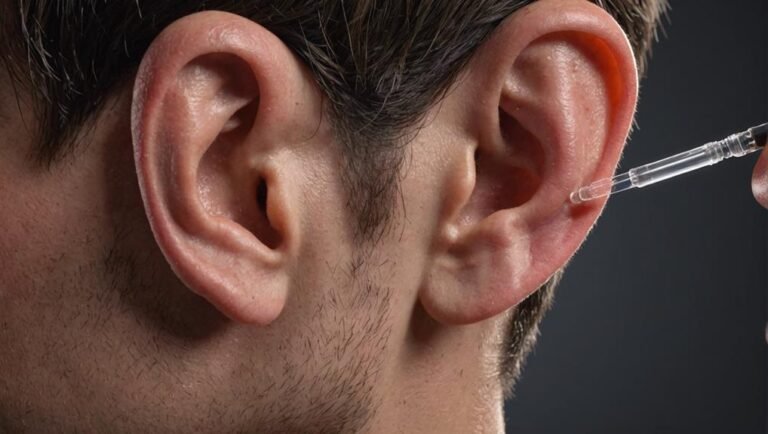Unlocking the Secrets of the Keto Diet
Discover the secrets of the keto diet to transform your weight management journey. Embrace a high-fat, low-carb approach to tap into the science behind this effective strategy. Shift your body's fuel source from sugar to ketone bodies, promoting fat loss and controlling hunger hormones. Craft meals rich in healthy fats, incorporating nuts, seeds, and low carb fruits for peak balance. Be mindful of risks like saturated fat intake and nutrient deficiencies, seeking guidance from healthcare providers. Compare keto with other diets for a holistic view. Uncover the power of this diet to enhance your health and well-being.
Key Takeaways
- Keto diet shifts body's fuel source to ketone bodies for energy.
- High fat intake and low carbs induce ketosis for fat metabolism.
- Choose healthy fats like avocados and nuts for macronutrient balance.
- Monitor protein intake to prevent hindrance in fat metabolism.
- Consult healthcare provider for potential risks before starting Keto diet.
Keto Diet Overview
The Keto diet, known for its emphasis on high fat intake, is primarily utilized to reduce epileptic seizures in children. When it comes to weight maintenance, the Keto diet can be effective due to its ability to help control hunger hormones and promote fat loss.
However, for athletic performance, especially in high-intensity activities, the diet may not be the best choice since carbohydrates are the body's main source of quick energy. While some athletes adapt and perform well on a Keto diet, others may experience a decrease in strength and endurance.
It's important to take into account individual differences and experiment cautiously if incorporating the Keto diet into your athletic routine to make sure it aligns with your performance goals.
Mechanism of Keto Diet
Shifting the body's fuel source from sugar to ketone bodies is the key mechanism behind the Keto diet. When you drastically reduce your carbohydrate intake to 20-50g per day, your body enters a state of ketosis. In this state, the liver produces ketone bodies from stored fat, which become the primary energy source instead of glucose.
It typically takes a few days of strict carb deprivation to kickstart the ketosis process. However, be cautious of excessive protein consumption as it can hinder the fat metabolism necessary for ketosis. Understanding this fat metabolism shift is essential for achieving the desired outcomes of the Keto diet and reaping its potential benefits.
Keto Diet Food
How can you effectively structure your meals on the Keto diet to guarantee high fat intake and proper macronutrient balance for best results?
To guarantee you're meeting the high fat requirement, incorporate healthy fats like avocados, nuts, and seeds into each meal. Opt for unsaturated fats over saturated ones.
Include low carb fruits like berries, which are rich in antioxidants and fiber, to add variety and essential nutrients to your diet. Vegetables such as leafy greens, cauliflower, and broccoli are excellent choices as they're low in carbs but high in vitamins and minerals.
Remember to track your fat, carb, and protein intake to maintain the necessary macronutrient balance for a successful Keto diet.
Risks of Keto Diet
In order to comprehend the potential risks associated with the Keto diet, it's important to examine the impact of high saturated fat intake on heart health and the potential for nutrient deficiencies due to limited food variety.
- High saturated fat intake: Raises concerns for heart health due to increased risk of cardiovascular disease.
- Nutrient deficiencies: Limited food variety may lead to inadequate intake of essential vitamins and minerals.
- Impact on existing health conditions: Keto diet may worsen liver conditions and strain the kidneys due to high protein intake.
It is essential to take into account these risks and consult with a healthcare provider before starting on a Keto diet to make sure it aligns with your overall health goals.
Comparison With Other Diets
When comparing the Keto diet with other popular low-carb diets like Atkins or Paleo, it's important to note that these variations share similarities in their potential risks related to overconsumption of fats and proteins. All three diets can lead to short-term success by reducing appetite, but concerns arise regarding the long-term sustainability of the Keto diet specifically.
The Keto diet's emphasis on high fat intake, if not from healthy sources, can negatively impact heart health. Additionally, nutrient deficiencies are a common risk due to the limited variety of foods allowed. While these diets may help with initial weight loss, the challenge lies in maintaining this loss and avoiding weight regain when shifting back to a normal diet.
Conclusion
To sum up, the Keto diet offers a unique and effective way to shift your body's fuel source and promote weight loss. By understanding the mechanism behind ketosis and making informed choices about your food intake, you can reap the benefits of this low-carb diet.
Remember, knowledge is power when it comes to your health – so why not take a leap into the world of high-fat, low-carb living and discover the secrets of the Keto diet? After all, the proof is in the pudding.







